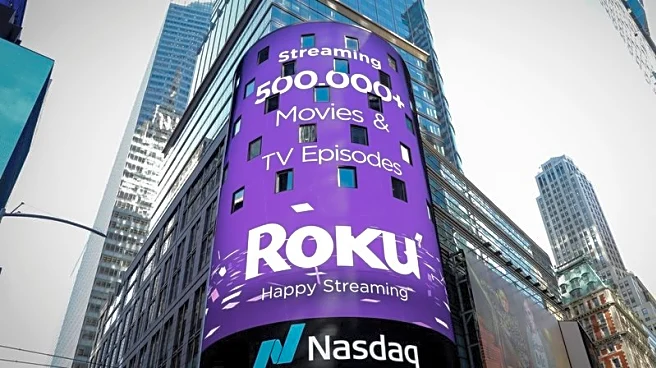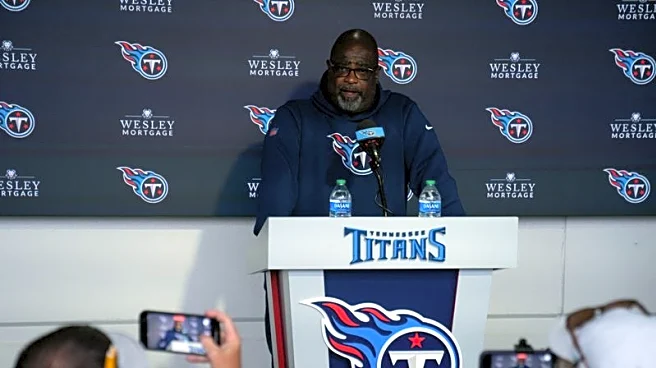What's Happening?
In 2025, the U.S. has stepped back from legislative efforts to address the climate crisis, prompting business leaders worldwide to fill the void. TIME has released its annual TIME100 Climate list, highlighting influential figures driving climate action
in business. The list includes individuals like Tyler Norris, a former Duke researcher, who is now part of Google's Advanced Energy team, focusing on sustainable power use in AI data centers. Internationally, leaders such as Jennifer Geerlings-Simons, President of Suriname, and Pralhad Joshi, India's renewable energy minister, are advancing significant climate initiatives. TIME's editors prioritized measurable achievements over mere commitments, resulting in a list that showcases the power of individual action in the climate economy.
Why It's Important?
The retreat of U.S. legislative efforts in climate action underscores the growing importance of individual and corporate leadership in addressing environmental challenges. The TIME100 Climate list serves as a recognition of those who are making tangible impacts, potentially inspiring others to follow suit. As governments like those in Suriname and India push forward with ambitious climate goals, the role of business leaders becomes crucial in bridging gaps left by policy shortcomings. This shift highlights the evolving landscape where private sector innovation and leadership are increasingly pivotal in driving sustainable practices and influencing global climate policy.
What's Next?
The recognition of these climate leaders may encourage further collaboration between businesses and governments to achieve sustainable goals. As individuals like Tyler Norris implement strategies within major corporations like Google, there is potential for widespread adoption of sustainable practices across industries. The actions of international leaders could also pressure other nations to enhance their climate commitments, potentially leading to a more unified global approach to environmental challenges. Continued monitoring of these leaders' progress will be essential in assessing the effectiveness of non-legislative climate action.
Beyond the Headlines
The emphasis on individual achievements in the TIME100 Climate list highlights a cultural shift towards valuing tangible results over promises. This could lead to increased accountability and transparency in climate initiatives, as stakeholders demand evidence of progress. The list also reflects a broader trend of integrating climate considerations into business strategies, which may influence corporate governance and investment decisions. As climate action becomes a key component of business success, ethical considerations around sustainability and environmental impact are likely to gain prominence.

















